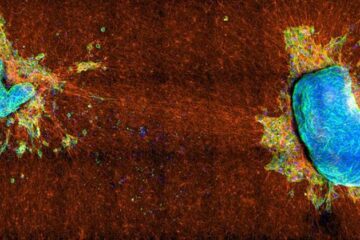Study Finds Airbags Reduce Risk of Kidney Injury in Car Crashes

Occupants in motor vehicles with airbags are much less likely to suffer kidney or renal damage in a crash than are occupants in vehicles without airbags, according to a new study in the September Journal of the American College of Surgeons.
Little is known about how to prevent or reduce injury to solid organs from motor vehicle collisions. In fact, this study is the first to evaluate the protective effect of airbags on a specific organ system – in this case, the kidney and other renal, or upper urinary tract, organs.
The researchers found that compared with the non-airbag group of crash patients, front-impact airbags were associated with a 45.3 percent reduction in renal injuries and side-impact airbags were associated with a 52.8 percent reduction in renal injuries. The importance of these finding is underscored by the fact that motor vehicle crashes are the most common source of blunt force trauma to the kidney, accounting for from 48 percent to 66 percent of all such injuries.
“The sharp reduction in the rate of kidney injury was surprising because airbags are primarily designed to protect the head and spine,” said Thomas G. Smith III, MD, assistant professor of urology in the Department of Surgery at The University of Texas Medical School at Houston. “These findings warrant additional investigation into the role airbags could play in protecting the kidney and other organs during a crash.”
In the crashes that involved renal injury, 54.7 percent were front-impact and 45.3 percent were side-impact. In the front-impact crashes, 74.9 percent involved a driver-side airbag and 16.6 percent involved a passenger-side airbag. For the side impact crashes, 32.2 percent of occupants had a side-impact airbag.
Researchers analyzed 2,864 records in the Crash Injury Research and Engineering (CIREN) database from 1996 to September 2008 and identified 139 kidney injuries in crashes in motor vehicles with and without airbags. The CIREN database was developed by the National Highway Traffic Safety Administration (NHTSA) to provide detailed crash site analysis and specific occupant injury data to aid in the study of prevention, treatment and rehabilitation of motor vehicle crash injuries. In 2008, there were about 6 million police-reported motor vehicle crashes in the U.S. that resulted in 2.3 million injuries and 37,261 deaths.
About the American College of Surgeons
The American College of Surgeons is a scientific and educational organization of surgeons that was founded in 1913 to raise the standards of surgical practice and to improve the care of the surgical patient. The College is dedicated to the ethical and competent practice of surgery. Its achievements have significantly influenced the course of scientific surgery in America and have established it as an important advocate for all surgical patients. The College has more than 77,000 members and is the largest organization of surgeons in the world.
Media Contact
All latest news from the category: Studies and Analyses
innovations-report maintains a wealth of in-depth studies and analyses from a variety of subject areas including business and finance, medicine and pharmacology, ecology and the environment, energy, communications and media, transportation, work, family and leisure.
Newest articles

Decoding development: mRNA’s role in embryo formation
A new study at Hebrew University reveals insights into mRNA regulation during embryonic development. The study combines single-cell RNA-Seq and metabolic labeling in zebrafish embryos, distinguishing between newly-transcribed and pre-existing…

Study sheds light on cancer cell ‘tug-of-war’
How cancer cells tug against each other determines whether they can migrate elsewhere in the body. Understanding how cancerous cells spread from a primary tumor is important for any number…

Latest generation of self-dissolving stents
Magnesium implants support coronary arteries and keep them open. Constricted coronary arteries harbor dangers: Because the heart is not supplied with blood properly, this can lead to pain, cardiac arrhythmia,…





















